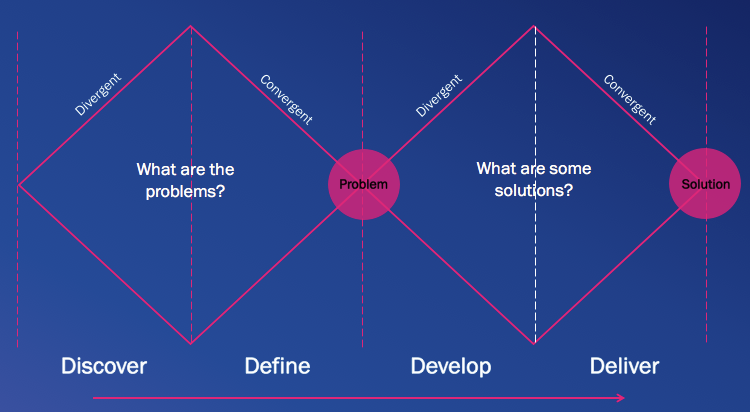Foresight exploration
Introduction
On March 29, 2024, the Executive Board of TU Delft agreed to initiate an exploratory study into the futures of engineering education at TU Delft in 2050 and beyond (FEE2050). This is done as part of the university's efforts to integrate strategic foresight more systematically into the development of strategy, policy and decision-making.
The project is proposed with the goal to deliver a structured exploration on university education, covering the following questions:
- What will be the key drivers shaping the challenges and expected impacts of technology and engineering for society moving towards 2050, and how might these come together as plausible scenarios for the future work and impacts of professional engineers?
- What requirements might these scenarios imply for the future roles of TU Delft in the education and development of engineers for and in their future careers, and in its contributions to technology-driven research, development, innovations and policy?
- How should the insights from these potential scenarios be reflected and incorporated into policy- and decision-making of TU Delft?
Approach
We have adapted the design thinking approach of the ‘double diamond’, in which there will be diverging (gathering input from a diverse range of stakeholders) and converging (sensemaking) in multiple moments. The goal is to engage relevant stakeholders from within and outside of the TU Delft throughout the process and invite them to think along with us about what the future of engineering education will look like in 2050. The goal is to use foresight thinking and methods to engage in these discussions and work towards concrete preliminary results.
First Preliminary Results
At this moment a first round of interviews with the Future Reference Group has been conducted on basis of a first discussion paper written by Mike Boxall, independent expert consultant in higher education. These first interviews provided some valuable insights:
- All of those interviewed had strong views on the essential and distinctive features of a TU Delft engineering education and whether these needed redefinition for changing future demands.
- There was a broad agreement across the interviews that these developments would require significant changes to the curricula and learning and teaching models offered by TU Delft, but less consensus on what these changes should entail or how they should be provided.
- It was generally recognised that future-facing changes in the content ad modes of engineering education would imply and require changes in the University’s organisation and relationships.
- Previous consultations (e.g. as part of the two Connections & Impacts reviews) have encountered widely-held views that TU Delft has not always been ‘good at change’.
We now hope to test and discuss these initial observations with wider interest groups, both within and outside the University. The questions we would like to discuss in this next round include:
- Do you agree with the view that future expectations challenges engineering education to change?
- What do you see as the most important drivers for such changes, and what they should entail?
- How should TU Delft be responding to the pressures for change in engineering education?
- What do you envisage the experience of education at TU Delft could or should look and feel like in 2050?
What can be expected moving forward?
As the subject is highly relevant for the TU Delft and the context for engineering education is always in flux due to new societal or technical developments, this project is envisioned as a long-term project. This project will result in multiple different (by)products and activities across campus, such as a paper working conference in 2025 a such as a drivers report, a working conference and ultimately the development of future scenarios.
What is strategic foresight?
The FEE2050 project is conducted as part of strategic foresight at TU Delft.
Strategic foresight is the capacity to systematically think about the future to inform decision-making today. TU Delft considers the development and application of strategic foresight as one of its priorities. The services in this area are provided by the Strategic Foresight & Innovation (SF&I) Unit.
Foresight involves using the collective thinking skills within the organization to imagine possible futures and their challenges or to stress-test existing strategies. By considering alternative futures beforehand, we enrich our decision-making processes and prepare ourselves more effectively for potential alternative outcomes.
In practice, foresight uses proven tools such as horizon scanning, scenario development, and policy stress testing. These tools help in identifying emerging trends, uncertainties, and potential disruptions. This systematic approach ensures that the university can adapt and remain resilient in the face of unforeseen changes. By applying a consistent outside in approach, foresight widens the horizons of strategy and policy thinking, serving as a counterweight to organizational dynamics that tend to emphasize the here and now.
Getting Involved
Are you interested to get involved? We are happy to include new perspectives on the topic of future education and invite you to reach out to us and see how we can collaborate. In addition, we also organize meetings and events, such as lunch seminars on different foresight topics, on a regular basis. Please don’t hesitate to sign up via: strategicforesight-sd@tudelft.nl
Contact
For more information on the project Future of Engineering Education, please contact the project team within the Strategic Foresight & Innovation Unit, part of the Directorate of Strategy Development at TU Delft. Our team is eager to address your questions and inquiries via: strategicforesight-sd@tudelft.nl.
